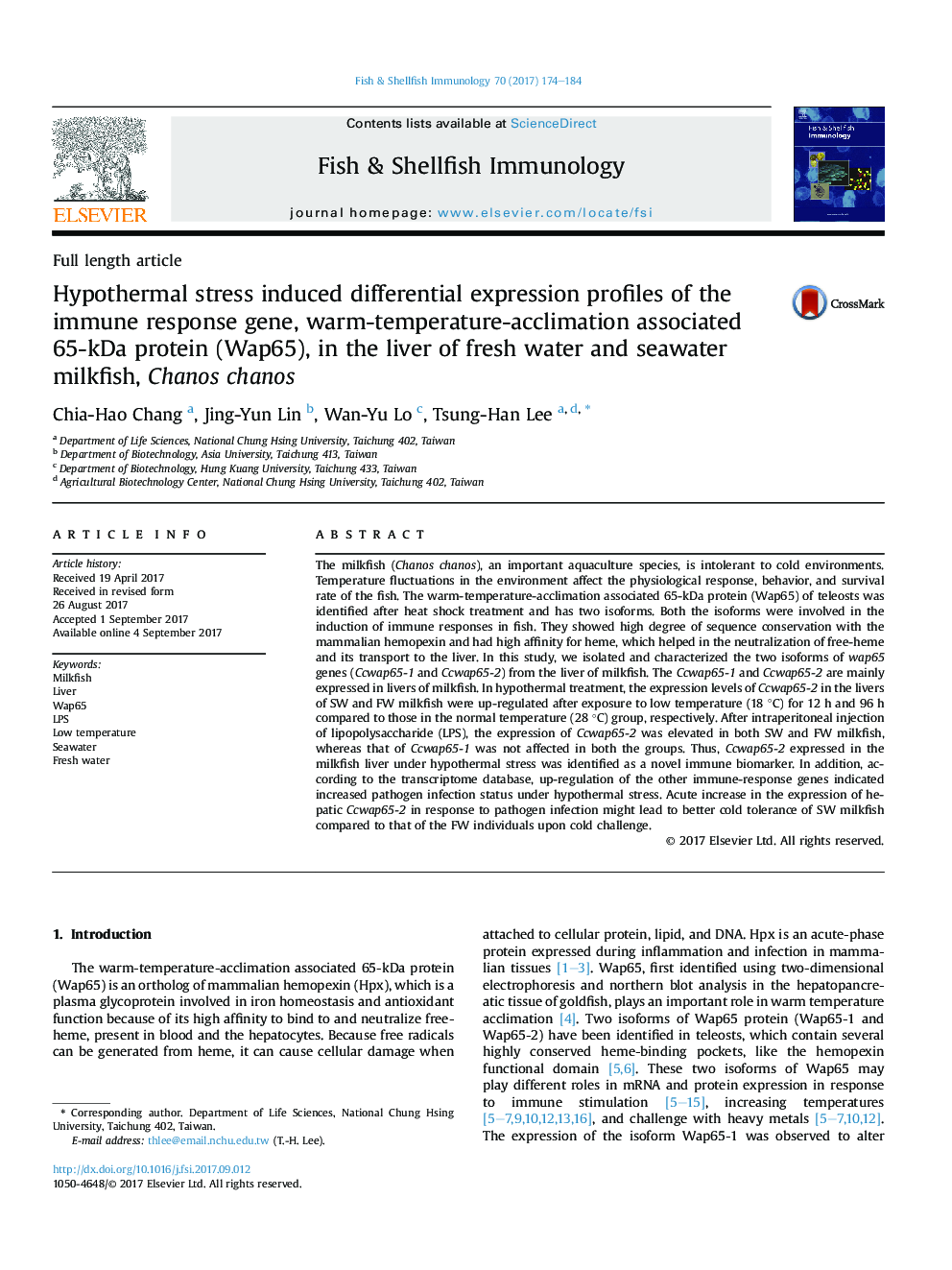| Article ID | Journal | Published Year | Pages | File Type |
|---|---|---|---|---|
| 5540273 | Fish & Shellfish Immunology | 2017 | 11 Pages |
Abstract
The milkfish (Chanos chanos), an important aquaculture species, is intolerant to cold environments. Temperature fluctuations in the environment affect the physiological response, behavior, and survival rate of the fish. The warm-temperature-acclimation associated 65-kDa protein (Wap65) of teleosts was identified after heat shock treatment and has two isoforms. Both the isoforms were involved in the induction of immune responses in fish. They showed high degree of sequence conservation with the mammalian hemopexin and had high affinity for heme, which helped in the neutralization of free-heme and its transport to the liver. In this study, we isolated and characterized the two isoforms of wap65 genes (Ccwap65-1 and Ccwap65-2) from the liver of milkfish. The Ccwap65-1 and Ccwap65-2 are mainly expressed in livers of milkfish. In hypothermal treatment, the expression levels of Ccwap65-2 in the livers of SW and FW milkfish were up-regulated after exposure to low temperature (18 °C) for 12 h and 96 h compared to those in the normal temperature (28 °C) group, respectively. After intraperitoneal injection of lipopolysaccharide (LPS), the expression of Ccwap65-2 was elevated in both SW and FW milkfish, whereas that of Ccwap65-1 was not affected in both the groups. Thus, Ccwap65-2 expressed in the milkfish liver under hypothermal stress was identified as a novel immune biomarker. In addition, according to the transcriptome database, up-regulation of the other immune-response genes indicated increased pathogen infection status under hypothermal stress. Acute increase in the expression of hepatic Ccwap65-2 in response to pathogen infection might lead to better cold tolerance of SW milkfish compared to that of the FW individuals upon cold challenge.
Related Topics
Life Sciences
Agricultural and Biological Sciences
Aquatic Science
Authors
Chia-Hao Chang, Jing-Yun Lin, Wan-Yu Lo, Tsung-Han Lee,
